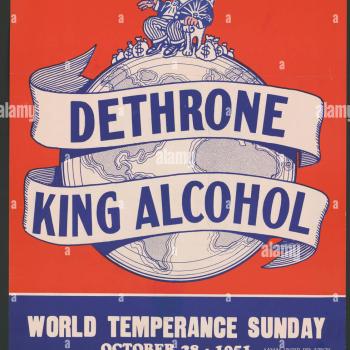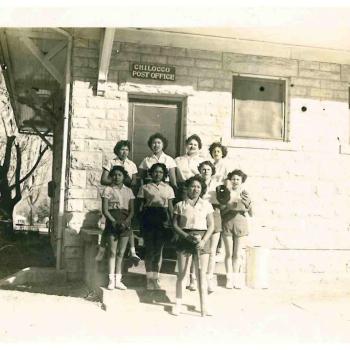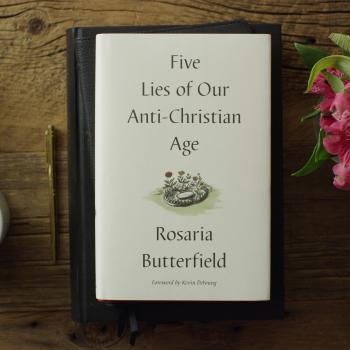In 1976 Playboy magazine conducted its infamous interview of Democratic presidential candidate Jimmy Carter. The interview nearly cost Carter the election. Secular pundits mocked his confession of “adultery in my heart.” Conservative Christians not only disagreed with his use of the word screw but objected that Carter would grant the salacious magazine an interview in the first place.
 The distinguished historian Randall Balmer goes beyond this notable episode to explore the evangelical spirituality that underlay the controversy in the first place. This biography of Carter is the latest in an abundance of research on non-rightist sectors of American evangelicalism. My own Moral Minority: The Evangelical Left in an Age of Conservatism (2012) has been followed by Brantley Gasaway’s Progressive Evangelicals and the Pursuit of Social Justice (2014) and now Balmer’s Redeemer: The Life of Jimmy Carter. Carter, contends Balmer, was a quintessential “progressive evangelical.” His spiritually minded mother pushed racial boundaries in the rural South and identified as a feminist before Betty Friedan. Carter, as a child and then as a young man who left the navy to become a peanut farmer in his hometown of Plains, Georgia, assumed similar stances on spirituality and justice. A hard-working populist who refused to join the White Citizens Council, he entered politics because he felt that he could help “establish justice in a sinful world.” Niebuhrian in his realism, he nurtured a warm evangelical piety, a strong conversionism, and a pronounced Baptist belief in the separation of church and state. These religious convictions drove Carter’s career as a state senator and governor.
The distinguished historian Randall Balmer goes beyond this notable episode to explore the evangelical spirituality that underlay the controversy in the first place. This biography of Carter is the latest in an abundance of research on non-rightist sectors of American evangelicalism. My own Moral Minority: The Evangelical Left in an Age of Conservatism (2012) has been followed by Brantley Gasaway’s Progressive Evangelicals and the Pursuit of Social Justice (2014) and now Balmer’s Redeemer: The Life of Jimmy Carter. Carter, contends Balmer, was a quintessential “progressive evangelical.” His spiritually minded mother pushed racial boundaries in the rural South and identified as a feminist before Betty Friedan. Carter, as a child and then as a young man who left the navy to become a peanut farmer in his hometown of Plains, Georgia, assumed similar stances on spirituality and justice. A hard-working populist who refused to join the White Citizens Council, he entered politics because he felt that he could help “establish justice in a sinful world.” Niebuhrian in his realism, he nurtured a warm evangelical piety, a strong conversionism, and a pronounced Baptist belief in the separation of church and state. These religious convictions drove Carter’s career as a state senator and governor.
They also animated his political agenda in the White House. Arguing against Carter’s reputation as an ineffective micromanager, Balmer describes impressive advocacy for human rights, the Panama Canal, the Camp David Accords, nuclear weapons limits, and the Equal Rights Amendment. In each of these efforts, Carter embodied a small, but energetic evangelical left that was rallying around the 1973 “Chicago Declaration.” This vibrant progressive movement labored against both evangelical political conservatism and evangelical apoliticism. On the ground, these evangelicals built Sojourners and Evangelicals for Social Action and campaigned for Oregon Republican Mark Hatfield, Iowa Democrat Harold Hughes, and President Jimmy Carter.
The book isn’t perfect. As I note in a review that appears in an upcoming issue of the American Historical Review, Balmer’s depiction of Carter’s broader evangelical context is not quite as convincing. Despite the work of Darren Dochuk, Bethany Moreton, and others on the long rise of evangelical conservatism since the 1940s, Balmer portrays Jerry Falwell and Pat Robertson as abrupt hijackers of an apolitical, benevolent evangelicalism. At the same time, he constructs an overly romanticized account of a nineteenth-century evangelicalism that pushed for abolitionism and women’s rights. To be sure, evangelicals pioneered many social justice initiatives, but they also reinforced Jim Crow, robber barons, and jingoistic imperialism.
Nevertheless, this is a terrific book. It demonstrates the significance of progressive strains of evangelicalism, showing that such strains reached the highest political office in the nation. It is based in extensive oral interviews, archival sources, and a multitude of newspaper and magazine accounts. It is compact, readable, and clearly argued. And it is a beautifully written spiritual biography that recovers the moral gravitas of an oft-maligned politician. Whatever the limits of progressive evangelicalism, whatever his political liabilities, Carter was clearly a man trying to articulate and practice Christian theological principles of temptation, sin, redemption, and salvation by grace.
















